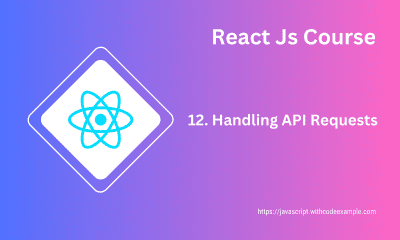Exploring The Best Firebase Alternatives Of 2023
- With Code Example
- April 9, 2024

Of all the available tools, many developers search for backend solutions that provide convenience as well as security, and so they usually settle for Firebase with its rich features and user-friendly interface. Even though the diverse nature of BaaS platforms (Backend-as-a-service) is rapidly developing, it is vital we don’t pound all our internet resources on this one platform (Firebase). The sea of alternatives was infinite, thus I sailed into a tech odyssey to discover the most gems of the Firebase in 2023. Now buckle up, as we take on a thrilling ride into a realm of real-time apps and authentication that is so flawless it’s almost magical. From AWS Amplify to MongoDB Realm, let’s get started!
Firebase
Firebase is a platform that is used by website developers. This is just merely my very own a little over-simplification of this very rapid-growing platform which is very popular amongst the website developers.
Firebase, being among all Google’s products, is a thing quite apposite and accordingly a hit. To continue with the illustration of the Swiss Army knife, the developers have their toolbox consisting of Leaks Analytics, Crashes, and Performance Monitoring within this toolset. While the jewels are authentication per say, it is the database and server-side functions that really commend this gem. You can definitely use Firebase to add some JS Spice and become the one who wows with a real-time app. But be warned, it’s a bit like digital fast food: short-term and high-speed, but with lifetime credit and the next-generation ownership challenges.
Amazon’s Brainchild: AWS Amplify.
To bring a stimulus for Firebase, here is AWS Amplify which is a response to Firebase by Amazon. Amplify subsequently slips sweet words of kindness into the ear of the developer while the latter explores the ocean of its features that cover analytics, prediction and notification. While DynamoDB, which is its base database, can seem pretty tedious with schema definitions, Amplify makes it easy for you, because it brings GraphQL API and a no-code tool for defining data relationships. However, I just regretted love-hate relationships with provider lock-in and rate-as-you-go billing model – just like being single in the tech era: it is extremely reliefing, but sometimes you have to pay badly for that.
Supabase: The Open-source Advocate
Aspotable Supabase , Y Combinator’s prodigy, enters the scene like the gym hedgehog. Supercharging its open-source PostgreSQL database and effortlessly combining adaptability with adherence to standard data modelling patterns, the its move has sought the hearts of as many data scientists as possible. Besides the web development features that it may tease us with like hosting a website, the cross-platform SDKs and the rush hour pricing serve it all on a platter and make it a real catch. On top of that, you are not the programmer but a relational database whisperer who gets used to dot notation and GraphQL (you have a choise).
Nhost: GraphQL Hero
Nhost is the jumper able to fit through the crowd using Hasura’s weight as the pedestal. There is no need to run a separate tool to play with the data: that’s what a PostgreSQL database turns into. While it has become a serf among the popular things, its easy to use and friendly integration with React is still a factor to be considered. At the end of the day exploring Nhost realm would mean going for GraphQL and Apollo client which might be an one-time sojourn of elbow grease though the result will be one of a flexible and scalable app.
Appwrite:
I remember being enchanted by the stars every night during camping trips my parents used to take us on.
Appwrite taking the lead as an open-source grassroots wide open cloud service provider will be unveiling its fully managed cloud service. An SDK that lurks between web and mobile, Appwrite provides a no SQL documents database experience that will induce a mystical enchantment to it. As it is originally based on ‘MariaDB’, an enhanced version of a traditional SQL database, it also represents something new. In as much as it still is young when it comes the popularity, it potential is for sure underrated, making it a one to watch out.
MongoDB Realm: The Maestro App has been designed for customers and has a suite of features for anyone that uses it.
MongoDB Realm stands up to meet the challenge pushing MongoDB behind its fast and prolific technology. Developed particularly for mobile developers, Realm goes with the data Flow from MongoDB Atlas on any Platform. Incompatibility with schemas and Realm objects still remains a nasty issue for it. However, I am really amazed by its data synchronizing capabilities in a real time. Styled for the fans of MongoDB, Realm might be a bit steep to learn, but it’s gonna be the ideal partner for those ones.
Honorable Mention: Parse
While the play is officially over, don’t forget to acknowledge Parse by doffing your hats. The social network’s open source undoer, Parse, is still having fun, even though it’s far from becoming my new best mate. Indie band is an association that is related with the indie band of the backend world—they are not popular but a thing worth being heard.
In Conclusion
As we’ve seen, the television show is one of the biggest universe out there, filled with variety. And that is the case even though Firebase is the front-runner today these competitors have come from behind with their own unique features. Whether you are a GraphQL master, a lover of open source or a person who simply wishes to get a simpler backend solution, you can still find something that will meet your needs. The secret is to escape from inviting the prettiest candidate here to one of your places and to get on well. Don’t forget this is all about applying development and the dream is to have a ship your mobile application.And who knows? Do any of those Firebase alternatives have what it takes to be your own “ticket to the hall of fame? Cheers to creation, adventures and also not setting trivial matters.
Tags
Related Posts

Understanding Logical Operators in JavaScript
When it comes to building robust and dynamic web applications, mastering the art of conditional logic is essential. JavaScript, as one of the primary languages of web development, offers a suite of logical operators that enable developers to create sophisticated decision-making processes.




